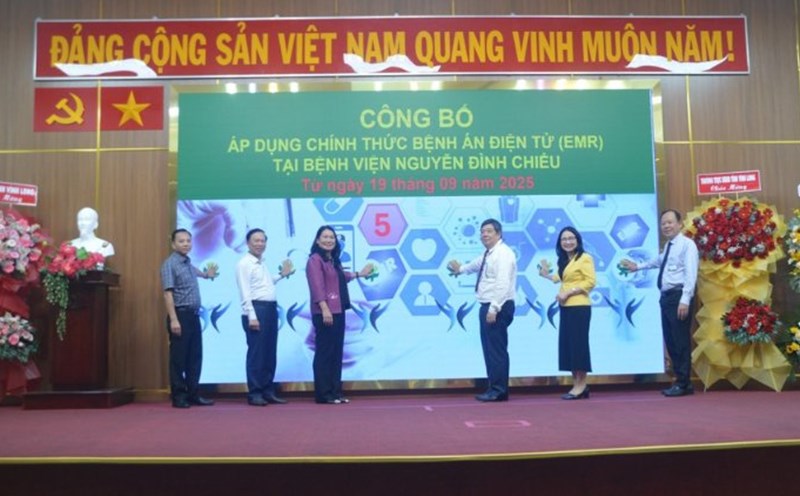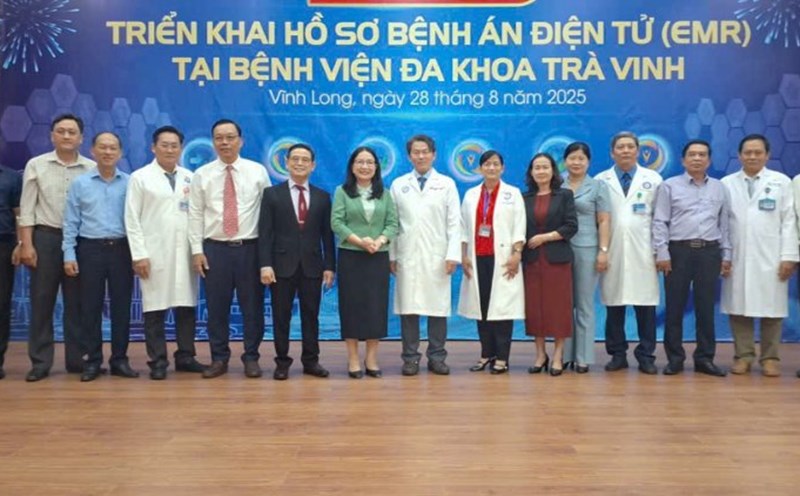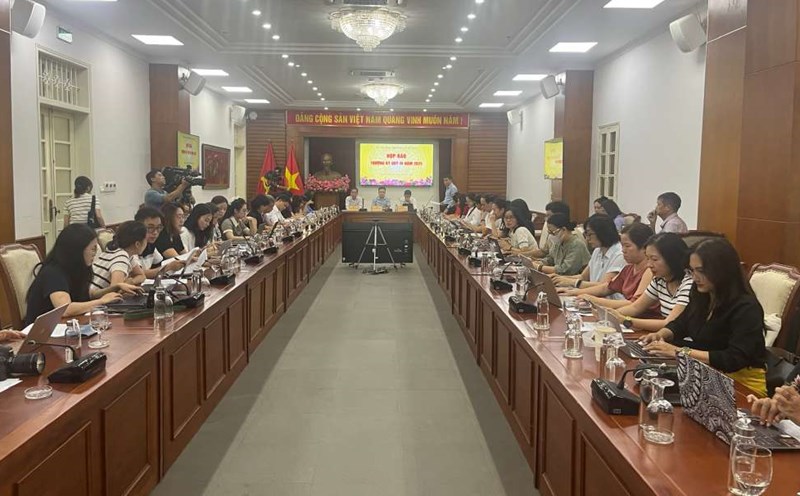Difficulty due to weak infrastructure
After reaching 100% of medical facilities deploying electronic medical records before September 30, the Vinh Long health sector continues to face a more difficult period with challenges of operating, connecting and effectively exploiting data.
Dr. Ho Thi Thu Hang - Director of Vinh Long Department of Health - said that the biggest difficulty at present is the uneven information technology infrastructure between levels, especially in remote medical centers that lack equipment and weak transmission lines.
In addition, the funding source for maintaining and upgrading the system still depends heavily on the state budget, while the cost of investing in software, servers and hiring maintenance services is very high, making it difficult for stable and long-term operation.
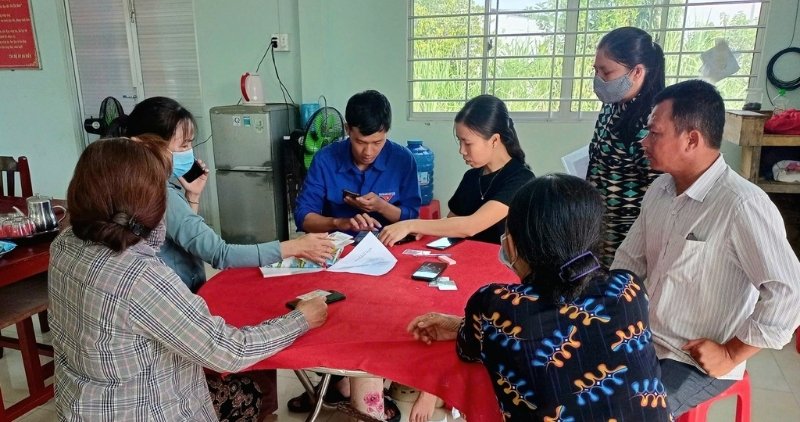
In addition, electronic records must still be maintained in parallel with paper records because there are not strong enough legal regulations to completely replace them. Data connection between systems also faces obstacles when each unit uses a different software platform.
In addition, the issue of personal information security and safety requires more investment and closer coordination. In terms of human resources, the IT team at many medical facilities is still thin and of uneven qualifications.
Some older health workers are still confused when operating the software, while people, especially in remote areas, are not used to using digital health services, making it difficult to popularize the Electronic Health Book.
Taking the people as the center
Dr. Ho Thi Thu Hang said that the health sector is focusing on 6 key groups of solutions to overcome difficulties, effectively maintain the electronic medical record system and electronic health books.
Specifically, the industry will complete the legal basis and data sharing mechanism; invest in synchronous infrastructure, build a provincial health data warehouse; develop a digital human resource team; add utilities for users; popularize electronic health books via VNeID; and mobilize the participation of departments, branches, and organizations to join hands in implementation.
Electronic medical records are not only a management software, but a foundation for forming a smart healthcare system, serving people faster, more accurately and more transparently, Ms. Hang added.
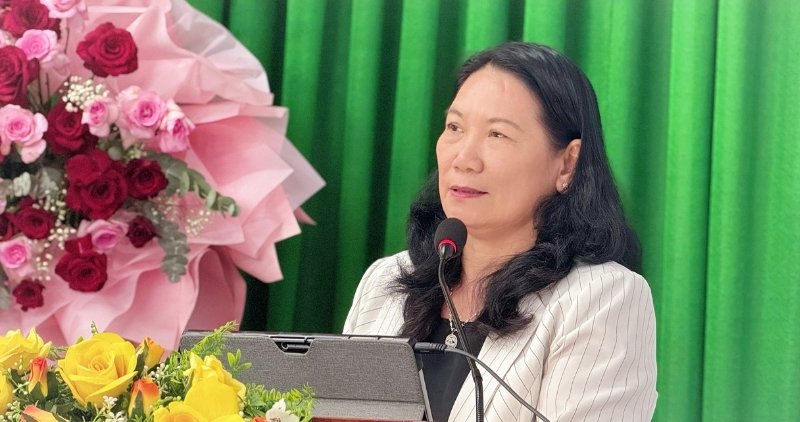
Speaking with Lao Dong, Ms. Nguyen Thi Be Muoi - Vice Chairman of Vinh Long Provincial People's Committee, affirmed that maintaining EMR effectiveness requires a long-term strategic vision, focusing on people.
Each citizen must have a single digital health record, associated with citizen identification, and they must have the right to proactively manage their own health.
She also requested the health sector to coordinate with relevant departments and branches to complete infrastructure, ensure data security, and mobilize social resources, strengthen public-private cooperation to sustainably develop the digital health system.
"This is a journey to build a smart, unified health system for public health - where technology serves people, and people master technology," Ms. Muoi added.


